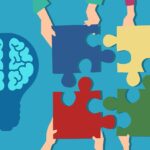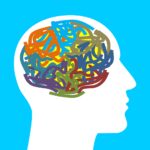Randi B. Miller
Randi Miller MA, CAS; MS.EDL
Ms. Miller is a NYS certified school psychologist with 24 years professional working experience at various Nassau BOCES special education programs. At present, she works in a school-age program that educates students with moderate to severe developmental disabilities including Autism. Additionally, she has completed the course work necessary to qualify for Certification as a School building leader and earned a MS degree from Nova University- Shepard Broad Law School with a concentration/specialty in Education Law.
In her role as a School Psychologist, she prepares and facilitates staff development trainings, workshops, and parent trainings both in person and now virtually. Ms. Miller has been developing and instruction professional development in-service classes for almost 10 years.
Ms. Miller offers courses for all educators in and out of the classroom in the areas of child and adolescent disorders, mental health, social emotional learning, positive behavior supports, classroom management and behavior intervention. Ms. Miller continues to develop and add new and relevant courses every year.
Check out my course offerings:
Courses |
|---|
 All About Anxiety in School Age Children All About Anxiety in School Age ChildrenThis course will provide participants with an overview of various anxiety disorders with a focus on: definitions, prevalence, diagnosis, and treatment. Emphasis will be placed on recognition of the behaviors, signs and symptoms that may be observed in the classroom and what accommodations and strategies teachers may use to support their students. This course is appropriate for all educators K-12, ELA, Social Studies, Math, Science, ESL, Special Education, Art and Music, Physical Education, School Psychologists, Guidance Counselors ,Social Workers Speech/Language teachers and therapists, OT & PT’s. Common Core Learning Standards are addressed. This course is important for ALL educators!
ON-LINE (3 Credits / 45 hours) in-service credit only $250.00$280.00 Buy here |
 All About: Managing Student Behavior in Remote & Blended Learning Environments All About: Managing Student Behavior in Remote & Blended Learning EnvironmentsIn March of 2020, educators entered the “unchartered waters” of remote instruction quickly adapting curriculum and instruction to virtual classrooms and a variety of online platforms. But what about behavior and classroom management systems? How did classroom routines and reinforcement systems work virtually?
As time marched on, educators expressed ongoing challenges with keeping their students actively engaged and behaving appropriately during remote instruction. Educators sought to implement classroom procedures in the virtual classroom and many quickly realized that maintaining attention or compliance remotely is not the same as when you are face to face.
This course will provide participants the opportunity to reflect on their current in school behavior and classroom management practices and learn how to extend them to a virtual learning environment.
Participants will learn what is considered best practice when managing behavior remotely with a focus on creating systems and plans that are consistent in both learning environments.
Participants will plan to pivot seamlessly between in person and remote instruction as needed.
Participants will learn all about digital resources designed for behavior and classroom and will consider and make decisions about what may work best for them
This course is relevant for all who work in schools with children ages 5-21 in both General and Special Education settings including (but not limited to) classroom and resource room teachers, related service providers (Speech/Language therapist, OT, PT), Special area teachers (e.g. Gym, Art, Music, Health) and all members of PPS (School Psychologists, Guidance Counselors, School Social Workers) and School Administrators.
ON-LINE (3 Credits / 45 hours) in-service credit only $250.00$280.00 Buy here |
 All About OCD: A Primer for Teachers All About OCD: A Primer for TeachersObsessive Compulsive Disorder (OCD) affects approximately one in 200 children. That means that approximately two million children in the U.S. currently have this illness and throughout the course of your career you are likely to have children struggling with this disorder in your classroom. This course will provide participants with the opportunity to learn the difference between obsessions and compulsions, the diagnostic criteria, the tell tale signs of the disorder that may be observed in the classroom, and how to support and accommodate students who may have OCD or OCD tendencies. This course is appropriate for all educators K-12, ELA, Social Studies, Math, Science, ESL, Special Education, Art and Music, Physical Education, School Psychologists, Guidance Counselors ,Social Workers Speech/Language teachers and therapists, OT & PT’s. Common Core Learning Standards are addressed.
ON-LINE (3 Credits / 45 hours) in-service credit only $250.00$280.00 Buy here |
 All About School Refusal: Helping our Students Attend and Stay in School All About School Refusal: Helping our Students Attend and Stay in SchoolEach year, approximately 2–5% of children refuse to come to school. School refusal can be observed in kindergarten students who demonstrate relatively mild separation anxiety to more severe cases where a student misses weeks or months of school. As a result of the social and educational consequences associated with missing school, the issue needs to examined and addressed promptly. This course will look at the factors associated with and contributing to the occurrence of school refusal. Participants will examine the short and long term effects of absenteeism, the signs and symptoms commonly associated with school refusal and research solutions to the problem.
This course is relevant to all who work in schools and with children ages 5-21 in both regular and special education settings. This course has been designed for school administrators, regular and special education teachers (grades K-12 and ages 5 to 21),special area teachers (gym, art, music) school psychologists, school counselors, guidance counselors, social workers, speech and language therapists and pathologists and occupational and physical therapists.
ON-LINE (3 Credits / 45 hours) in-service credit only $250.00$280.00 Buy here |
 All About School Mental Health Issues All About School Mental Health IssuesThe mental health of students in schools is an often overlooked, yet extremely relevant issue for today’s educator. Educators are often the first to notice mental health problems and are in a unique position to make a difference when it comes to promoting and addressing student mental health concerns in and out of the classroom. Mental disorders: affect a student’s emotional well-being, affect a student’s ability to learn and may be a factor in why some students drop out of school. This course will cover: common mental health disorders, the role of educators to identify warning signs, communicating with parents and supporting students in the classroom.
This course is relevant to all who work in schools with children ages 5-21 in both regular and special education settings. This course has been designed for school administrators, regular and special education teachers (grades K-12 and ages 5 to 21),special area teachers (gym, art, music, technology) school psychologists, school counselors, guidance counselors, social workers, speech and language therapists or speech pathologists and occupational or physical therapists.
ON-LINE (3 Credits / 45 hours) in-service credit only $250.00$280.00 Buy here |
 All About: Trauma Informed Behavior and Classroom Management All About: Trauma Informed Behavior and Classroom ManagementTraumatic experiences come in many forms ranging from one-time events (like the current pandemic) to experiences that are prolonged and recurring. To date, approximately 50% of the nation’s children and adolescents have experienced at least one or more types of serious childhood trauma. The effects of these traumatic experiences impact how students focus, attend, learn, form relationships and behave in the classroom. Trauma informed interventions focus on building relationships, routines, choice-making and self-regulation skills. This course has been developed to provide all educators with content knowledge on the types and biology of trauma, ACES, and best practices in trauma-informed behavior and classroom management strategies. The course will provide participants with the knowledge and tools they need to create a safe, supportive learning environment for all students. A timely course given the current public health crisis and school shut down. A good opportunity to be prepared to meet the needs of staff and students when school re-opens.
Course Objectives:
Participants will:
1. Develop an understanding of what trauma is and the effect it has on brain development
2. Form an awareness of the role trauma can play in classroom performance and behavior
3. Become trauma aware and develop a trauma lens in which they can look at behavior in a different way
4. Examine traditional behavior and classroom management strategies and adapt them to be trauma informed and trauma focused
5. Create an action plan to address the needs of students impacted by the effects of trauma
This course is relevant to all who work in schools with children ages 5-21 in both regular and special education settings. This course has been designed for all school administrators, regular and special education teachers (grades K-12 and ages 5 to 21),special area teachers (gym, art, music, technology) school psychologists, school counselors, guidance counselors, social workers, speech and language therapists or speech pathologists and occupational or physical therapists.
ON-LINE (3 Credits / 45 hours) in-service credit only $250.00$280.00 Buy here |
 All About an Educators Guide to Tourette Syndrome All About an Educators Guide to Tourette SyndromeChildhood tics are quite common and are reported as occurring in approximately 4 to 18% of school aged children. The purpose of this course is to provide information about Tourette Syndrome (TS) and how school aged children can be supported in school. The course will cover both information about the disorder as well as strategies for supporting and instructing students with TS. This course is appropriate for all educators K-12, ELA, Social Studies, Math, Science, ESL, Special Education, Art and Music, Physical Education, School Psychologists, Guidance Counselors ,Social Workers Speech/Language teachers and therapists, OT & PT’s. Common Core Learning Standards are addressed.
Course Objectives:
1. Participants will research the essential features of Tourette’s and related disorders
2. Participants will consider the implication and effects of TS on classroom performance and school attendance
3. Participants will identify strategies and supports for students with TS and related symptoms
4. Participants will learn how to create a plan to support their students
ON-LINE (3 Credits / 45 hours) in-service credit only $250.00$280.00 Buy here |
 All Behavior is Functional: Functions of Behavior and How to Increase Participation and Manage Misbehavior All Behavior is Functional: Functions of Behavior and How to Increase Participation and Manage MisbehaviorApproximately 10 percent of the school population (or 9-13 million children) struggle with and demonstrate behaviors associated with mental health problems, ASD, developmental and learning disabilities. Additionally, on the rise, are students who struggle day to day from the effects of trauma or bullying. In the classroom, children with behavioral challenges often fail in school, waste time in detention or suspension, fall behind academically or never master the skills they need to make adequate progress. All the while, educators and all school-based professionals are under pressure to show progress for every student every year.
This course is relevant to all who work in schools with children ages 5-21 in both regular and special education settings. This course has been designed for all school administrators, regular and special education teachers (grades K-12 and ages 5 to 21),special area teachers (gym, art, music, technology) school psychologists, school counselors, guidance counselors, social workers, speech and language therapists or speech pathologists and occupational or physical therapists.
Course of objectives:
1. Participants will learn the basics of behavior
2. Participants will gain an understanding of the functions of behavior and how to use this methodology to understand behavior
3. Participants will synthesize their learning in order to help them manage the misbehavior of even the most challenging of students
4. Participants will apply behavior principles in order to create systems to motivate and get more out of their students
ON-LINE (3 Credits / 45 hours) in-service credit only $250.00$280.00 Buy here |
 All about: Creating regulation and calm in yourself, staff and students All about: Creating regulation and calm in yourself, staff and students(3 Credits / 45 hours) in-service credit only ON-LINE
Instructor: Randi B. Miller Rmillerliips@gmail.com Course Description:
Learning, thinking, listening, processing information, communicating and relationships with others are best when one is in a calm and regulated state.
Regulation in others, starts with our own skills of self-regulation. Then through the process of co-regulation, calm is shared and modeled which in turn develops and fosters the ability for students to self-regulate.
This course will provide participants a framework to understand calm and regulation through the brain/body/behavior connection. Participants will develop a working understanding of the terms: regulation, dysregulation, and co-regulation. The course will also provide resources and materials to help participants implement strategies and teaching procedures to create calm. This course is appropriate for all educators K-12, ELA, Social Studies, Math, Science, ESL, Special Education, Art and Music, Physical Education, School Psychologists, Guidance Counselors ,Social Workers Speech/Language teachers and therapists, OT & PT’s. $250.00$280.00 Buy here |
 All about: Creating Regulation and Calm in Yourself, Staff and Students All about: Creating Regulation and Calm in Yourself, Staff and Studentsformerly titled: Strategies to Promote Regulation and Calm in yourself, staff and students throughout the day 3 credits/45 hours … In service only Course Description: Learning, thinking, listening, processing information, communicating and relationships with others are best when one is in a calm and regulated state. Regulation in others, starts with our own skills of self-regulation. Then through the process of co-regulation, calm is shared and modeled which in turn develops and fosters the ability for students to self-regulate. Appropriate for all Educators and Staff K-12. $250.00$280.00 Buy here |
